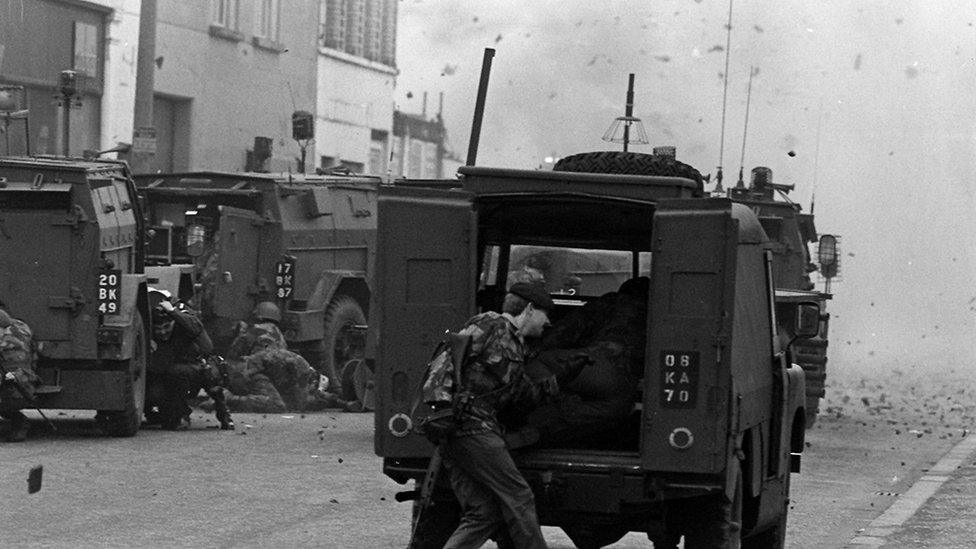Troubles legacy bill: Victims take protest to Westminster
- Published
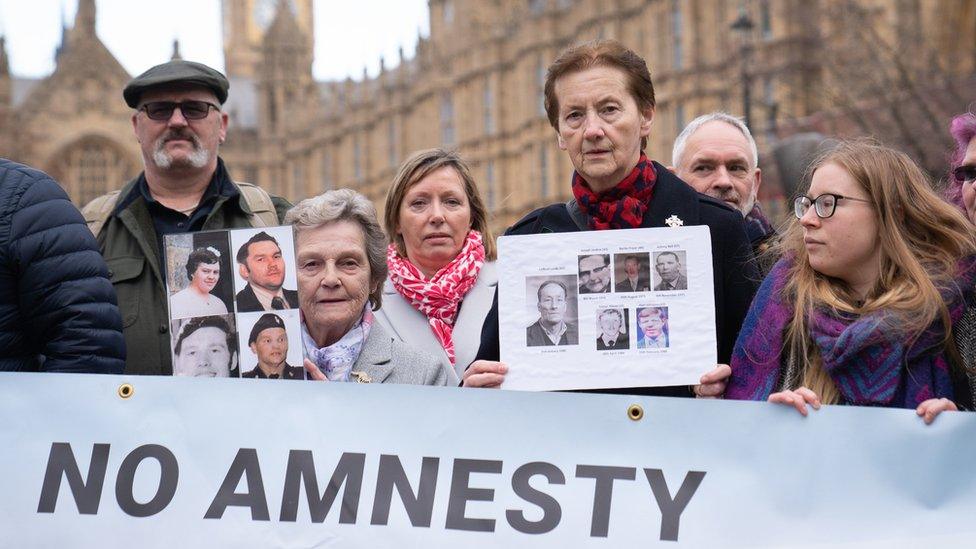
People whose loved ones were killed in the Troubles protested outside the Houses of Parliament
Legislation offering a conditional amnesty to people accused of killings during the Troubles "shuts down democracy", a victim's son has said.
The Reverend Alan Irwin, whose father and uncle were killed by the IRA, was speaking at a Westminster protest ahead of a debate on the bill.
The UK government is trying to amend its controversial legislation.
Ministers have said their proposed changes include a more robust process on immunity from prosecution.
Mr Irwin said the bill signalled "an end to justice".
"This was a golden opportunity for this government to right the wrongs of the past, to put accountability front and centre.
"This bill - it talks about legacy and reconciliation. I don't know who added reconciliation onto a bill where there's not even a sign of reconciliation within it, nor is there a hope of it," he added.
The clergyman was speaking at a demonstration outside the Houses of Parliament as the legislation was about to be debated in the House of Lords.
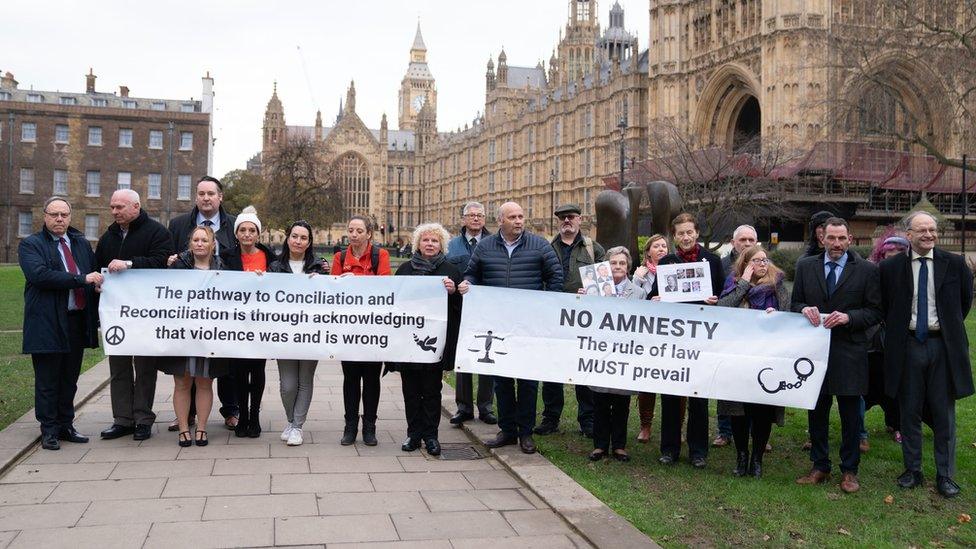
Members of the South East Fermanagh Foundation (SEFF) victims group unveiled banners opposing the bill
The planned changes to the Northern Ireland Troubles (Legacy and Reconciliation) Bill, external have already been rejected by victims' groups and all of the political parties in Northern Ireland.
Pam Morrison, another campaigner who lost family members in the Troubles, said victims were "the ones left to do the whole suffering and it is very hard to move on".
Three of Ms Morrison's brothers were killed by the IRA.
'Completely wrong'
Ronnie, Cecil and Jimmy Graham, who were all part-time members of the Ulster Defence Regiment (UDR), were shot dead in separate attacks in County Fermanagh in the 1980s.
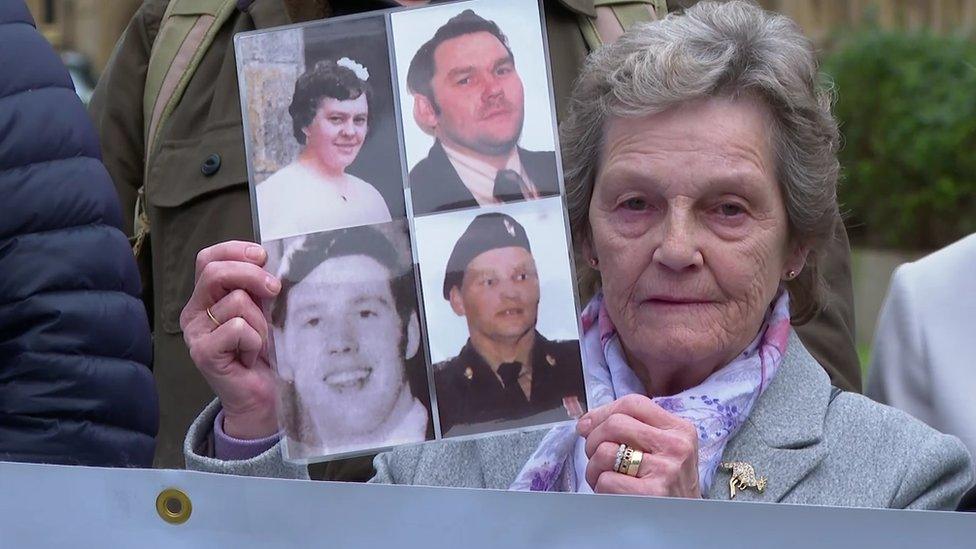
Pam Morrison's sister and her three brothers served in the Ulster Defence Regiment
Her sister, who was also a UDR member, died years later after being hit by a car at a checkpoint.
She said: "You have got to learn to live life back over again, which is completely wrong."
Jennifer Jordan, another campaigner who lost relatives at the hands of the IRA, told BBC News NI that six members of her family "put on their uniform and helped to defend their country against terrorism".
"And yet now they are being pushed away... I think that is totally wrong."
It is not just Northern Ireland families who oppose this bill - Farid Berrezag's parents' lives were turned upside down by the IRA bombing at Canary Wharf in 1996.
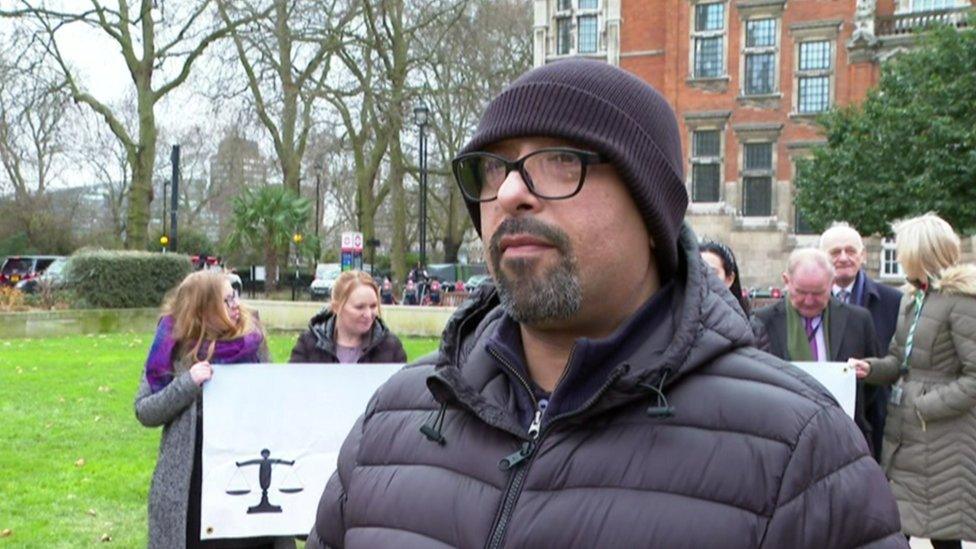
Farid Berrezag's father was severely disabled by an IRA bomb and his late mother became his carer
"I have lost both my parents because of what happened to us as a family. It is all as a direct result of terrorism," he told BBC News NI.
"So is that nice for people like us to get on with our lives and suffer, whilst somebody else who has done it can enjoy their life? It is not fair."
The Democratic Unionist Party (DUP) peer Lord Dodds described the government's Legacy Bill as "rotten".
"It basically elevates terrorists and perpetrators of violence above their victims.
"That is fundamentally wrong."
The UK government proposals have been described as an attempt to draw a line under more than 30 years of conflict in Northern Ireland.
It has argued that the information recovery process outlined in the bill seeks to provide answers for surviving victims of the Troubles and "help enable communities to look forward from the legacy of the past".
The government has also said that the creation of an Independent Commission for Reconciliation and Information Recovery (ICRIR), external to investigate Troubles-era incidents would allow police forces to "get on with day-to-day policing".
Related topics
- Published21 January 2023
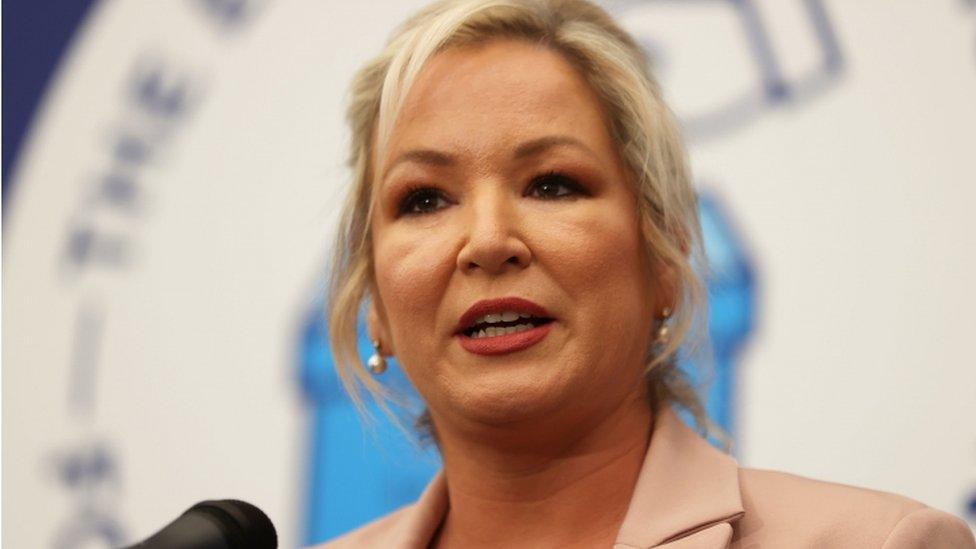
- Published23 November 2022
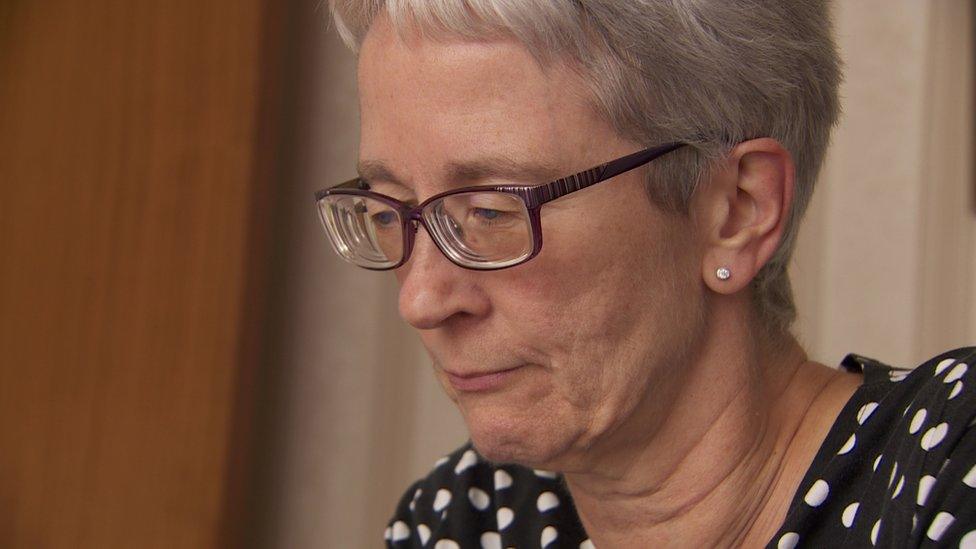
- Published24 November 2022
